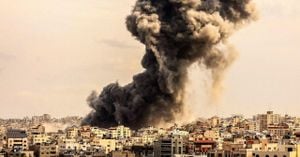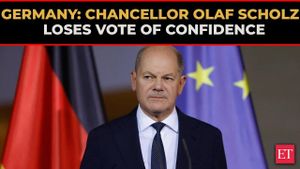Russian President Vladimir Putin asserted this weekend his forces are engaged in battle to defend "national interests," expressing unwavering determination to bolster the country’s military strength as the conflict enters its fourth year. "Our strategy for strengthening and developing the armed forces remains unchanged," he stated, emphasizing the bravery of soldiers on the front lines.
According to data from BBC, over 95,000 Russian soldiers have perished since the onset of the conflict with Ukraine, not including casualties from militia forces aligned with Russia, which are estimated to account for between 21,000 and 23,500 fatalities. This staggering loss is attributed to broad but invisible losses among soldiers, many of whom are from the self-proclaimed republics of Donetsk and Luhansk, where young men like Daniil Dudnikov are drafted under duress.
On February 24, 2022, the day of Russia's full-scale invasion, Daniil, then a 21-year-old history student, faced forced mobilization and was swiftly dispatched to battle. Within weeks, he went missing, and his family learned only months later he had been killed. His story is tragically emblematic of the fates awaiting many young men from these contested regions.
Despite these enormous casualty figures, the war’s impact on Russian society appears muted for many, particularly those from privileged backgrounds who may remain disconnected from the realities faced by lower-income communities. With only about 30% of Russians having personal connections to the military, the broader population remains less aware of the scales of loss.
"The losses are felt most by segments of Russian society with lesser resources," noted Gulnaz Sharafutdinova, director of the Russia Institute at King’s College London. She pointed out how the Kremlin has strategically insulated more affluent groups from the direct impacts of the war. This pattern is mirrored by the recruitment of convicts, many of whom are drafted with misleading promises and sent to the front lines, often leading to high casualty rates.
Recent reports estimate around 16,171 criminal recruits have died, highlighting another layer of tragedy within Russia's military losses. Many of these individuals had voluntarily enlisted, hoping to avoid serving time but instead found themselves fighting on the front lines.
The issue of counting casualties becomes compounded due to the lack of transparency from the Russian government. Analysts suggest Russia's actual military losses could be significantly higher—ranging from 146,194 to as high as 211,169 killed. This stands in stark comparison to Ukraine's reported death toll of 43,000 among military personnel, which some Western analysts believe to be understated.
Both BBC and Mediazona have collaborated to maintain records of military casualties by analyzing obituaries, grave sites, and other formal reports. This methodology suggests the numbers they are reporting likely account for only 45% to 65% of actual fatalities due to various factors including bodies remaining unaccounted for on the battlefield, primarily as retrieving them risks exposing soldiers to Ukrainian strikes.
This grim scenario is not lost on the international community, as demonstrated by the UK’s push for new sanctions against Russia, the largest since the war initially began. Foreign Secretary David Lammy emphasized the necessity of these measures to impact Moscow's military revenues significantly.
Sociologist Viktor Vakhshtayn raised poignant questions about how these casualty figures might shift public sentiment if more Russians were personally connected to the fallen. Already, the war has changed lives within Russia's poorer regions, creating discussions confined to private conversations rather than public discourse.
Meanwhile, the Kremlin has dangled the chance for lucrative investment opportunities to Western energy companies as it navigates its geopolitical isolation. The interest is significant, yet Western firms remain cautious due to the historical challenges they have faced operating within Russia, especially following the 2022 invasion.
Overall, as the conflict approaches its fourth year, the ramifications of both military strategies and societal impacts are still being deeply felt. The international community remains alert, crafting policies aimed at mitigating the effects of Russia's sustained aggression against Ukraine, all the enquanto keeping in mind the echoes of grief and loss rippling through society.



